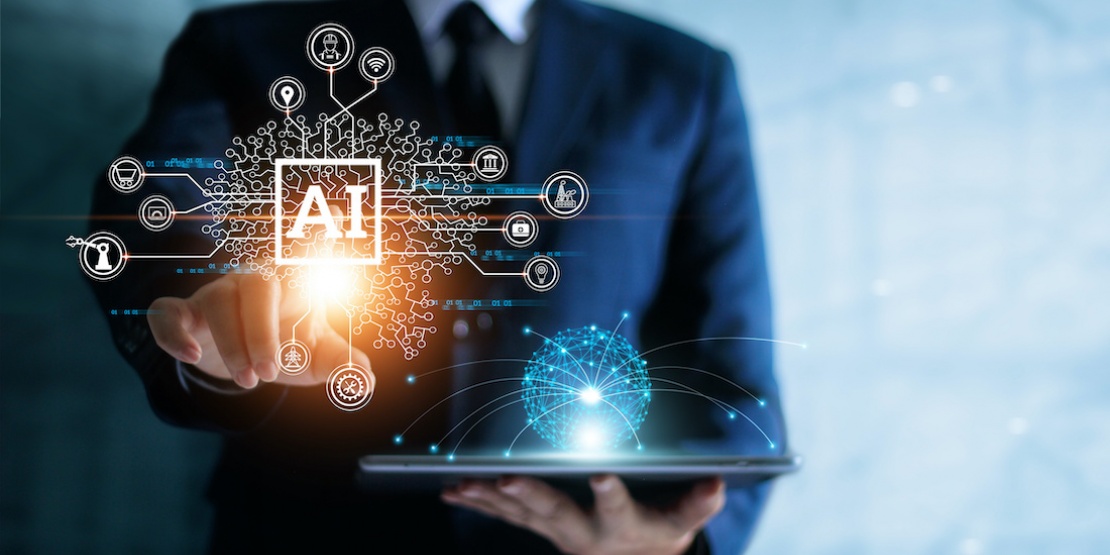For several months now, Artificial Intelligence (AI) has been in the spotlight with the development of generative AI (GPT-4, ChatGPT, Einstein GPT, DALL-E, to name but a few). A formidable performance lever, Artificial Intelligence is already a reality for many sectors of activity and professions (health, insurance, finance, commerce, etc.). However, this new technology still has great potential for development. According to a report published by Accenture, AI technologies could boost the profitability of companies by about 38% by 2035[1]. On the procurement side, the first use cases are emerging, and the range of possibilities for application is becoming more and more apparent. From data processing to process improvement, discover what Artificial Intelligence is capable of.
How does Artificial Intelligence work in business?
Artificial Intelligence encapsulates a range of technology that works "smartly" and autonomously (Machine Learning, Deep Learning, etc.). In more practical terms, these tools can perform tasks that require human-like cognitive abilities to process information. These machines can therefore reproduce certain behaviours such as perception, reasoning, planning, learning, etc.
AI, when combined with Big Data, absorbs a phenomenal amount of data so it can examine it, design models and draw correlations. Applied to the procurement function, it has the ability to manage all the data from various sources such as the procurement platform, online catalogues, supplier relationship management software (SRM), enterprise resource planning (ERP), etc.
Consisting of a set of algorithms, AI is able to process and use this data, consolidate it, deduplicate it automatically and index it in real-time. Tools based on this technology enable buyers to monitor and exploit information continuously at every stage of the procurement process. This includes supplier identification, contracting, order entry and planning, delivery and invoice monitoring, etc.
The impact of Artificial Intelligence on companies, and specifically on the procurement function, is likely to be decisive. A recent American study conducted jointly by researchers from OpenAI, Open Research and the University of Pennsylvania indicates that around 80% of workers could have at least 10% of their tasks taken over by generative AI. For 19% of them, up to 50% of their tasks could be affected. With this process automation technology developing at a great pace, Bill Gates, co-founder of Microsoft, said the following: "I knew I had just seen the most important advance in technology since the graphical user interface".
Applications of AI to boost procurement processes
By processing and analysing data, companies create value throughout the procurement process. Today, these technologies are in the appropriation phase as the first use cases develop.
Procurement categories
Artificial Intelligence can structure procurement by following a defined process according to a certain nomenclature and typology. For example, when an internal customer submits a requirement, the tool is able to tell if it is covered by a catalogue or a supplier contract, if it is appropriate to request a quote from a supplier already in the database or if it has to source new suppliers.
Invoicing
The first field of AI application for procurement departments is often the Procure-to-Pay process, specifically invoicing. This is because these are very time-consuming processes that do not create any particular value. Today, some invoice management systems can automate the processing of almost 50% of invoices. The tool extracts the relevant information, reconciles it with the order and generates the payment without any human involvement.
Supplier sourcing
Upstream of calls for tender, AI can explore the market and pre-qualify suppliers. Some solutions can already do this and can even identify the small, highly specialised company that perfectly meets the need. Another example: A bot can also analyse the suppliers’ responses to a Request For Information (RFI) and suggest recommendations.
Contracts
AI can also ensure contracts are compliant. A banking group actually tested this when they had to analyse their contract reference database to conform with the GDPR (General Data Protection Regulation). The company used AI to identify all contracts containing personal data and ensure that they contained the required clauses. The procurement team estimated that this strategy cut processing time by a factor of 6!
Supplier relationships
AI can also take over multiple facets of supplier relationships, including risk and incident management. For example, this technology can flag instances of default or non-compliance simply by tracking contractual information. This means that if a supplier doesn’t deliver by the agreed deadlines, AI can alert the buyer concerned and propose alternatives so that production isn’t impacted.
Performance management
Last but not least, Artificial Intelligence is a technology that can support buyers in managing their procurement performance. It helps them to monitor how their expenses are building up and to anticipate future costs, etc. Buyer become proactive rather than reactive.
AI can also help businesses accelerate decision-making by providing relevant analyses based on real-time data. Buyers are then able to make informed decisions more quickly. It also enables them to anticipate risks and take the necessary steps to safeguard the company’s business.
AI in business has multiple benefits for procurement departments, including the provision of more information, increased productivity, savings, and security, to name but a few. Thanks to digital transformation and the use of new technology (including AI), buyers will eventually be able to focus on higher value-added tasks such as developing relationships with their suppliers or contributing to CSR (Corporate Social Responsibility). Companies using Artificial Intelligence have a significant advantage, as it is a source of competitiveness, innovation and value creation.
- Discover our "Long Tail Spend: Adopt lean procurement" white paper.
[1] https://www.accenture.com/fr-fr/company-news-release-artificial-intelligence-2035









